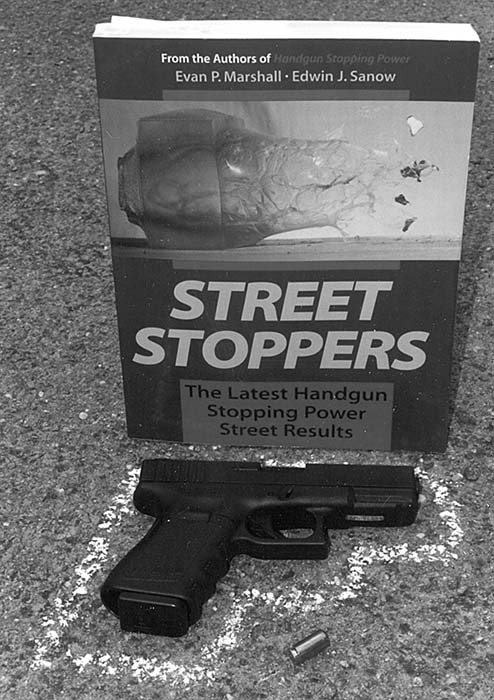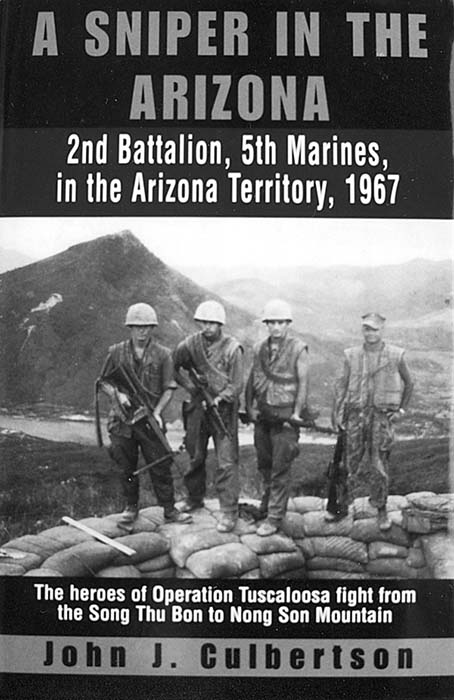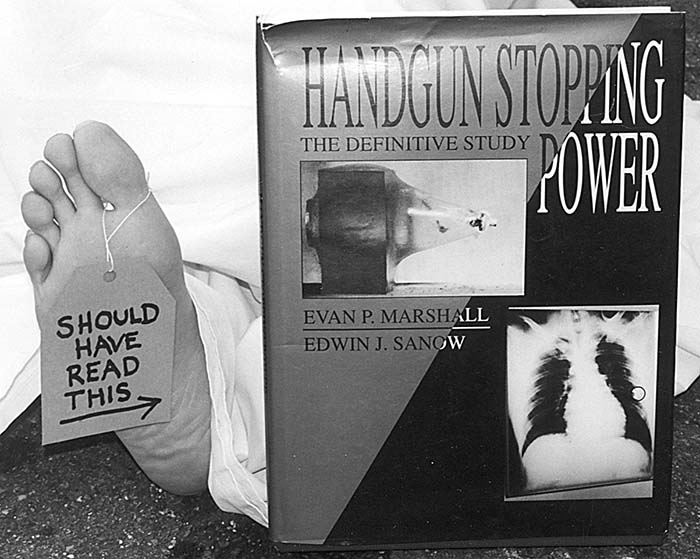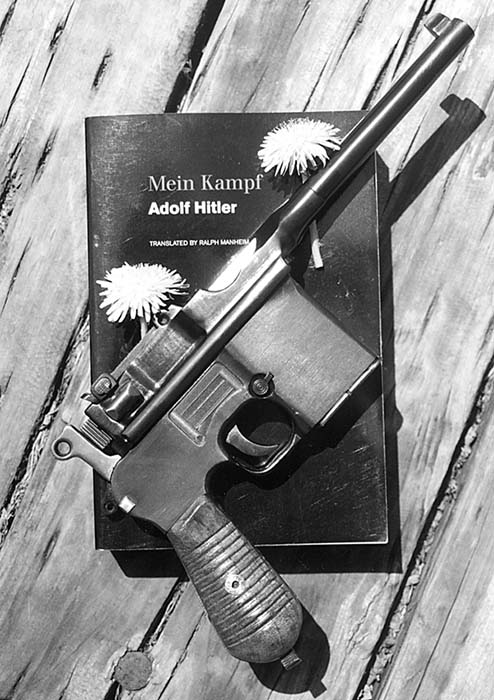By David Fortier
STREET STOPPERS
The Latest Handgun Stopping
Power Street Results
By Paladin Press
P.O. Box 1307
Boulder, Colorado 80306
1-800-392-2400
$39.95 plus S&H
392 pages
Reviewed by David Fortier

‘Street Stoppers’ is the long awaited sequel to ‘Handgun Stopping Power’. Like their first book, Evan Marshall and Edwin Sanow have compiled the results of hundreds of real life shootings involving all the major handgun calibers. Of special interest are the chapters covering the 10 mm and the .40 S&W cartridges. These two loads were still very new when the original book came out and thus were not covered to any degree. Also the infamous Strasbourg Goat Tests are covered. In this test, French Alpine goats, under scientifically controlled conditions, were shot with all the current handgun rounds and the results recorded. The Alpine goats were chosen as their weight, lung capacity, and thoracic cage dimensions are very similar to those of man. The testing lasted 18 months and almost 500 animals were shot. The results are impressive and enlightening and correlate closely with the street results the authors have compiled. This book, like the previous one, is well written in an easy to read style. While the subject matter can cover engineering theories and medical information it is presented in such a way to be easily digested. The more you read the more you understand that there’s an awful lot to how a modern hollow point bullet actually functions. The authors also explore the latest designs of premium hollowpoints and exactly how they work. I would highly recommend buying and reading ‘Handgun Stopping Power’ before you tackle this book. This will give you a good introduction into the data being discussed in this book. If you’ve read ‘Handgun Stopping Power’, then you’ll want to read this. For the person serious about personal defense this book is a must read. Anyone who searches around for the best pistol, ammunition, holster combination should have this book on the shelf. The time for arguing over which caliber and load is best is over. Now take an objective look at how the load in the pistol on your hip actually performs on the street. Maybe you’re right, maybe you’re wrong, either way though don’t you want to know?
A SNIPER IN THE ARIZONA
by John Culbertson
269 pages
Ivy Books
www.randonhouse.com
ISBN 0-7394-0269-2
Reviewed by Seth R. Nadel

This is John Culbertson’s second book on the Vietnam War – his first was Operation Tuscaloosa, a prequel to this book. To readers of SAR, most of the book is another fine first person memoir. It includes the details that make the action real, and the book a first class read.
Unlike what you would expect from the title, there is little sniping covered in the book, and this text is not centered about sniping, but about the men Culbertson served with, and the conditions they served under. In fact, judging from some comments in the book, his platoon and company officers did not know what to do with a sniper once they had one on board. This is a situation alluded to in other works on the Vietnam War.
There are two real gems in A SNIPER IN THE ARIZONA. One is his description of attending the 1st Marine Division Sniper School. The rich detail of his experience fleshes out the raw lesson plans seen elsewhere. These chapters alone are worth the price of the book. If you have any interest in military sniping, this book is a must read.
Even more on point to SAR readers is his description of the introduction of the M16 to men “on the sharp end”. While the initial failure of the M16 has been noted and dissected by researchers, here, for the first time to my knowledge, is “the word” from one who was there. His tale of a patrol where every M16 jammed is enough to scare anyone who has seen the elephant. In addition, Culbertson was personally interviewed by Congressman Ichord, as part of the congressional investigation, and told it like it was. In short, he wanted his M14 back!
If you have any interest in sniping, military history, or the development of our service weapons, your library is not complete without A SNIPER IN THE ARIZONA.
HANDGUN STOPPING POWER THE VIDEO
By Paladin Press
P.O. Box 1307
Boulder, CO 80306
1-800-392-2400
ISBN 0-87364-910-9
$37.95 plus S&H
Aproximately 90 minutes
Reviewed By David Fortier

Evan P. Marshall and Edwin J. Sanow broke new ground on handgun stopping power in their two books “Handgun Stopping Power” and “Street Stoppers”. In them you can read about the reality of terminal handgun ballistics and why some handgun loads work better than others. Now Paladin Press allows you to see and hear the reality firsthand. Anyone who may ever need to defend themselves with a handgun should be interested in this subject as the choice you make in choosing the ammunition you put in your pistol may save! I was extremely impressed by the professional quality of this video. The graphics, sound, camera work, editing, and everything else was a definite cut above most videos I have seen. It takes you from the Thompson-LaGarde Study of the turn of the century to the more recent attempts at predicting stopping power. Each is described and their flaws shown. Then Marshall and Sanow’s street results from actual shootings are described and how they correlate with testing in 10 percent ordnance gelatin. The physical and neurological mechanics of stopping power are described in detail by a medical doctor. Testing in ordnance gelatin is shown step by step. From where to purchase the gelatin to how to prepare it, use it for testing, and how to measure and calculate the results to predict a particular load’s effectiveness are all shown in detail. Plus different bullet designs are shown fired into gelatin and why certain designs work better than others is explained. There is a lot of information in this video, and the interviews with witnesses to shootings are highly informative. But it is not a grisly, graphic shoot-em-up flick. This professional video is geared towards the person who is a serious student of stopping power, and for them it is excellent.
MEIN KAMPF
By Adolf Hitler
Translated by Ralph Manheim
Houghton Mifflin Company
215 Park Avenue South
New York, New York 10003
ISBN 0-395-95105-4
$18.00 plus S&H
694 pages
Reviewed by David Fortier

Mein Kampf?!! First let me allay your fears, this review has no Neo-Nazi or Fascist undertones or political leanings. Neither are we sympathetic to such types. It is precisely for this reason that I felt it timely, due to current events, to review this work. As you have probably grappled to understand the events and goings on in Yugoslavia so have I. Here in this often talked about, but seldom read book are many answers and insights to questions people are asking today. Adolf Hitler penned Mein Kampf while imprisoned in Landsberg Am Lech Fortress Prison in 1924. While writing about his birth, childhood, and events that led to World War I he gives a glimpse of the Eastern European cauldron that still boils today. As a subject of the Austro-Hungarian Empire, Hitler saw firsthand the unrest and ancient hatreds that burned deep. For someone looking for information on the different people in the region of Yugoslavia, and why they dislike each other so, there is a surprising amount of information here that reads like the headlines off today’s paper. For the military buff Hitler’s infantryman’s view of World War I is eye opening. Sometimes we forget that he saw heavy combat from 1914 until gassed just before the end of the war in 1918. His account reads like Erich Maria Remarque’s “All Quiet On The Western Front”; the similarities are astonishing. And we find out why Hitler never allowed them to use poison gas on the field of battle even in the darkest days of World War II as he recounts being blinded by gas.
Then there is the Nationalistic Pride and boundless seething hatred. This too we see in today’s headlines. Here we have someone that harnessed it to the detriment of millions. In Mein Kampf, Hitler spelled out to the world what his plans were, and the world ignored him, hoping he’d go away. He didn’t. Neither are the problems in Yugoslavia going to go away anytime soon. For someone looking for answers to questions, you may find some here.
| This article first appeared in Small Arms Review V4N2 (November 2000) |











